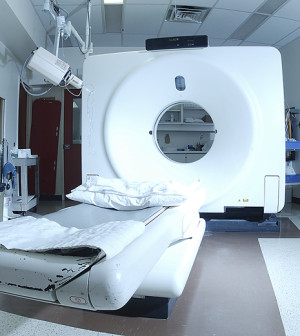- Could Your Grocery Store Meat Be Causing Recurring UTIs?
- Are You Making This Expensive Thermostat Error This Winter?
- Recognizing the Signs of Hypothyroidism
- 10 Strategies to Overcome Insomnia
- Could Artificial Sweeteners Be Aging the Brain Faster?
- Techniques for Soothing Your Nervous System
- Does the Water in Your House Smell Funny? Here’s Why
- Can a Daily Dose of Apple Cider Vinegar Actually Aid Weight Loss?
- 6 Health Beverages That Can Actually Spike Your Blood Sugar
- Treatment Options for Social Anxiety Disorder
Brains of Those With Anorexia React Differently to Hunger Signals


People with anorexia nervosa have an abnormal brain response to hunger signals, a new study finds.
“When most people are hungry, they are motivated to eat,” study first author Christina Wierenga, an associate professor of psychiatry at the the University of California, San Diego School of Medicine, said in a university news release.
“Yet individuals with anorexia can be hungry and still restrict their food intake. We wanted to identify brain mechanisms that may contribute to their ability to ignore rewards, like food,” she explained.
The finding offers new insight into eating disorders and could lead to new treatments that target specific brain pathways, according to the researchers.
The findings were published recently in the journal Biological Psychiatry.
For the study, the researchers analyzed brain function in 23 women who had recovered from anorexia and 17 healthy women who never had the eating disorder.
The women recovered from anorexia “showed decreased response to reward, even when hungry. This is opposite of healthy women without an eating disorder, who showed greater sensitivity to rewards when hungry,” Wierenga said.
“Our study suggests that brain circuitry differences in anorexics make them less sensitive to reward and the motivational drive of hunger. Put another way, hunger does not motivate them to eat,” study senior author Dr. Walter Kaye, director of the Eating Disorders Treatment and Research Program at the university, said in the news release.
Kaye also noted that the researchers saw differences in areas of the brain that are important for self-control in those who had recovered from anorexia. That means people with anorexia may have greater self-control than people who don’t have the eating disorder, according to Kaye.
Up to 24 million Americans have anorexia or other eating disorders, which can lead to many health problems and can be life-threatening.
More information
The U.S. National Institute of Mental Health has more about eating disorders.
Source: HealthDay
Copyright © 2026 HealthDay. All rights reserved.










